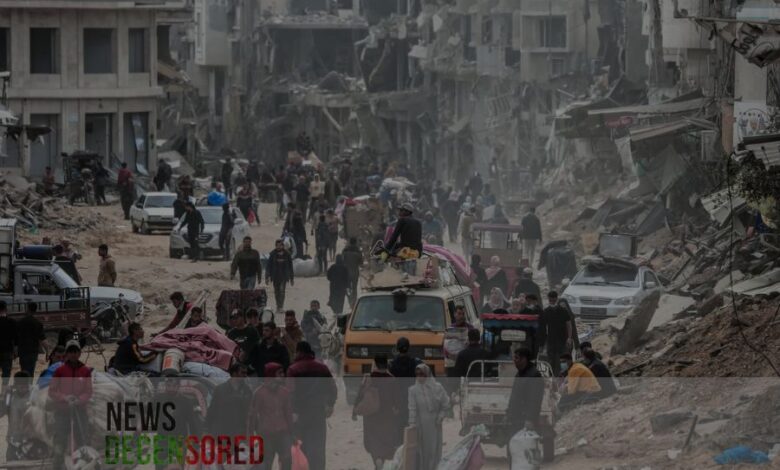American aid to Gaza by air and an Israeli condition for continuing negotiations

According to researchers, an American and an Israeli official are saying that the administration of US President Joe Biden is pressuring Israel to allow humanitarian aid into Gaza at the same levels as before the end of the truce.
This came as relief organizations warned that the resumption of fighting would significantly worsen the humanitarian crisis in the Strip.
After the end of the truce and the failure of efforts to extend it, and following the resumption of battles in the Gaza Strip, the United States stressed the necessity of providing the Strip with aid in the usual manner during the truce period.
The website added, quoting an American official, that Secretary of State Anthony Blinken, who was on his way back to the United States from the region, called on Friday Israeli Minister of Strategic Affairs, Ron Dermer, and stressed that Israel must allow aid to enter at the same level as it was during the war.
The source added that shortly after the call, Israel allowed about 50 trucks loaded with aid to enter southern Gaza but did not allow fuel to enter the Strip.
An Israeli official also said that Israel allowed about 100 aid trucks to enter Gaza on Saturday, including two trucks loaded with fuel.
Relief organisations warn that the resumption of fighting, especially in southern Gaza, where there are two million Palestinians, will significantly worsen the humanitarian crisis in the Strip.
Relief organisations also warn that the largest amount of aid that entered Gaza during the temporary truce is only a very small portion of the Strip’s needs.
The ceasefire agreement will restrict Israel from allowing trucks carrying humanitarian aid to Gaza to increase to about two hundred per day.
Israel also allowed four trucks loaded with fuel and four trucks carrying cooking gas to cross into the Strip daily during the cessation of fighting. Still, it stopped the entry of aid and fuel trucks after the collapse of talks to extend the ceasefire.
On the ground, the Palestinian News Agency reported that seven people were killed in an Israeli bombing of a house in Rafah, south of the Gaza Strip, this morning.
Medical sources in the Gaza Strip reported that more than 150 citizens were killed in the Shejaiya neighbourhood, where an entire residential square near Diwan Muntaha was bombed with dozens of bombs.
The Israeli army continued to violently target Khan Yunis, where dozens of citizens were killed and injured as a result of the bombing.
In the Nuseirat camp, dozens of citizens were killed and injured in Israeli raids on Saturday evening.
The wave of forced displacement from Khan Yunis towards Rafah continues under Israeli bombing. Amid a worsening humanitarian crisis in the streets, displaced people spread out, carrying some belongings with them, searching for shelter to protect them from the bombing and the cold. At the same time, most of them said that they did not know where to take refuge.
Since the start of the war, about two million people have been displaced, representing 80% of the Gaza Strip’s population. The influx of thousands south and their accumulation raises the concern of humanitarian organisations about the shelter centres that cannot accommodate more displaced people, which has led many to sleep on the sidewalks and streets without accommodation.
The ongoing wave of displacement threatens to exacerbate the catastrophic health and environmental conditions amid scarcity of food, water and medicine.
After their lives turned into a realistic nightmare, Palestinian civilians are calling on the international community to stop the war.




